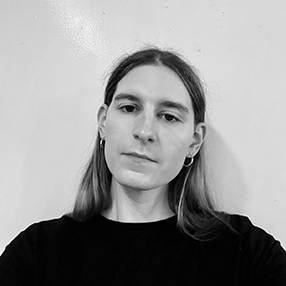Malice
I have violence in me, of rage, and of necessity, and my love has none.
When pushed to it I would punch a man, or maybe wield a gun, but I am stopped by his pure disgust.
This is something new in me: I have sometimes wished death, where I hadn’t before.
While I wasn’t looking it left me, some of my tenderness, and in leaving something tensed where it had been.
Like A., praying for the man to get hit by a car who yelled at me so loudly, for so long, followed us to keep yelling.
There is malice in the world, and maybe some of it is ours now.
“Why should I cater to you” he said to me, so loudly, in my white high-waisted shorts and my clogs like my mom’s with my hair piled on top of my head, and this word, “cater,” it made me laugh.
Sometimes a poet can tell when a word is not a speaker’s own.
So that I could stop obsessing about this very possibility, I had practiced a response to yelling, and though I surprised myself by responding in exactly this practiced way of course nothing changed.
Language can be about force instead of relation.
When an experience is not really “about you” you can still be there, experiencing it.
“There are only two kinds of people,” he said, so loudly.
Maybe he’s right: maybe there are those who are violent, or who could be, and those who aren’t.
But the watermelon I bring home is yellow on the inside, and the melon my mother takes from the bin of smooth-rind honeydew is a cantaloupe.
This is not about fruit.
A poet is not inherently good.
It’s about how, at the end of the violence, I still want to know—what did it matter to him?
Copyright © 2023 by S. Brook Corfman. Originally published in Poem-a-Day on June 14, 2023, by the Academy of American Poets.
“I am a rigorous drafter, but an idiosyncratic reviser. I make small edits; I add; I reorder. This poem started as a narrow response to a single event and widened over time. I thought a lot about the example of a snapping twig that Sara Ahmed uses in her essay ‘An Affinity of Hammers’: ‘A snap sounds loud, and it seems like a sudden movement. But the snap would only seem the start of something, or as the beginning of violence, if you did not notice the pressure on the twig. Pressure is hard to notice unless you are under pressure.’”
—S. Brook Corfman

